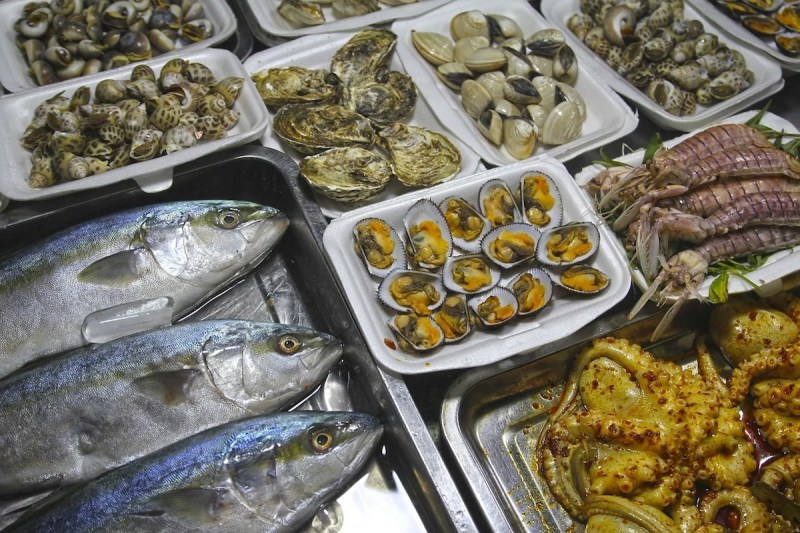If you find yourself feeling pretty fatigued by the afternoon and don’t understand why, you are not alone. There can be many reasons you lack energy, and this is a common complaint my training and nutrition clients share with me. When working with them, I have found that an incomplete diet can often be the cause. Whether you eat a wide variety of healthy foods on a daily basis or not, taking certain vitamins for energy could help you bridge any gaps.
Keep reading to learn more about how vitamins can impact your energy levels, as well as which specific ones you should include in your supplement routine.
Benefits of natural energy supplements

Taking natural vitamins for energy offers a holistic method to give yourself extra energy. When used alongside other healthy energy-boosting lifestyle habits, such as a regular exercise routine, natural energy boosters can help you feel great and work better during work and exercise. The unique benefit of using natural energy supplements such as vitamin B12 is that they do not contain high levels of caffeine like synthetic energy drinks and products.
Most standard energy drinks on the market, such as C4, contain high levels of added caffeine, resulting in a major mid-afternoon crash. To make matters worse, many people turn to drinking another energy drink once this crash occurs, resulting in a caffeine intake that is too high. Consuming excess caffeine can lead to several health problems, from anxiety to heart problems. For this reason, adding natural energy supplements is a smarter, safer choice.
Coenzyme Q10

If you’re looking to enhance your athletic performance, supplementing with Coenzyme Q10 might be worth a try. Also called CoQ10 for short, research shows that this supplement works to decrease oxidative stress in the cells and improves mitochondrial function. By enhancing your mitochondrial function, your muscles may be able to contract more efficiently during tough workouts. To add to the Coenzyme Q10 benefits, another study also found that supplementing with Coenzyme Q10 could help reduce fatigue, also helping to improve athletic performance.
Vitamin B12

Vitamin B12, also known as cobalamin, is one of the many essential B vitamins that should come from our food. However, according to the National Institutes of Health, “Approximately 3.6% of all adults age 19 and older have vitamin B12 deficiency, and the rate is 3.7% in those age 60 and older.”
Vitamin B12 does not directly give our bodies energy, but it is involved in helping our body to convert food into energy. With this in mind, it’s important to ensure you’re getting enough vitamin B12 from food. If not, a vitamin B12 supplement may help to boost your energy levels.
Ashwagandha

Ashwagandha comes from a specific type of evergreen shrub that is commonly grown in Asia and Africa. Many ashwagandha benefits make this a popular supplement — from better sleep quality to improved mental clarity. Ashwagandha can also be used as a natural energy booster and could help boost your workouts too. One study found that supplementing with ashwagandha helped to improve muscle endurance and strength, too.
Consuming the appropriate dose of this supplement can help you avoid ashwagandha side effects. The recommended ashwagandha dosage to start is about 250 to 500 milligrams per day for adults, with up to 1000 mg considered to be generally safe.
Creatine

Creatine is a popular supplement that is often found in a powder form that is mixed into water or other sports beverages. Many weightlifters and athletes are drawn to creatine benefits such as faster muscle recovery and improved muscle mass. In addition, creatine can also be used as a natural supplement to provide a fast burst of energy and to improve aerobic endurance. Creatine supplements work by supporting your cells to produce more ATP, our cell’s most basic form of energy.
Creatine side effects are generally mild, but you should start slowly and work your dosage up over time to avoid any digestive issues. Most adults can handle between 3 to 5 grams of creatine for a maintenance dose, so starting with less than 3 grams per day is ideal as your body adjusts to this natural supplement.
Boosting energy naturally

From enhanced cognitive function to better athletic performance, we want a healthy boost of energy to help us perform at our best. Coenzyme 10, vitamin B12, ashwagandha, and creatine are natural energy boosters that can help give you the jolt of energy you’re looking for without the crash from energy drinks. However, remember to check with your doctor before starting any new supplements to ensure there are no interactions with medications you may be taking.
Frequently asked questions

Should I take B12 or B complex for energy?
If you’re low on energy, B12 and B complex can both help, but the best choice depends on your needs. B12 is ideal if you have a deficiency, which is especially common in vegans and vegetarians. B complex includes all B vitamins, which support energy production and metabolism. If you’re unsure, a B complex may be more beneficial, but a blood test can determine if B12 alone is all you need.
What vitamins am I lacking if I’m always tired?
If you’re constantly tired, you may be lacking B12, iron, vitamin D, or magnesium. B12 and iron deficiencies can cause fatigue and weakness, especially in vegetarians or those with poor absorption. Vitamin D is key in energy levels and magnesium helps with muscle function and relaxation. A blood test can confirm deficiencies, but you can just start taking a multivitamin to be on the safe side.




